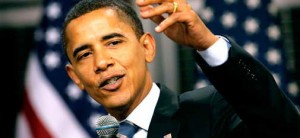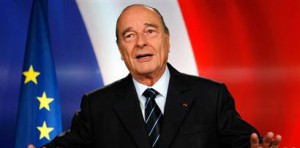 There were fears tonight a tsunami could wreak devastation across the Pacific after a massive earthquake in Chile.
There were fears tonight a tsunami could wreak devastation across the Pacific after a massive earthquake in Chile.
More than 120 people were killed when the 8.8 magnitude quake struck the South American country early today.
It sent shockwaves out from the epicentre 70 miles from Chile’s second city Concepcion, causing buildings and bridges to collapse and catch fire.
The quake, the most powerful to hit the nation in 50 years, struck around 200 miles south west of the capital Santiago.
As powerful aftershocks caused further problems along the coast, tsunami warnings were issued in 53 countries around the Pacific Ocean – roughly a quarter of the globe.
The tsunami could strike any country in the Pacific, with the US state of Hawaii potentially facing its largest waves since 1964.
Asian, Australian and New Zealand shores were at risk along with the US West Coast and Alaska.
With the Chilean president declaring a “state of catastrophe” and the death toll continuing to rise, British aid organisations deployed teams to help in the aftermath.
Chile is at high risk of earthquakes because it lies on the boundary between the Pacific plate and the South American plate.
The latest quake happened after the Pacific plate pushed down on to the South American plate.
According to seismologists, there is usually around one quake of a magnitude of eight a year while one reaching 8.8 would only be expected every few years.
source : http://www.independent.co.uk/
]]> Gamers’ enthusiasm for keeping fit or playing tennis in their living rooms may be on the wane as sales of the Wii console plunged in the first half, slashing Nintendo’s profits and prompting the group to cut its full-year forecasts.
Gamers’ enthusiasm for keeping fit or playing tennis in their living rooms may be on the wane as sales of the Wii console plunged in the first half, slashing Nintendo’s profits and prompting the group to cut its full-year forecasts.
Nintendo said it had continued its strategy of “putting smiles on many people’s faces… regardless of age, gender or gaming experience” this year. Yet there would have been few smiles in its boardroom as the gaming giant reported that net income had fallen from ¥144.8bn (£950m) to ¥69.4bn.
The falling profits were largely attributed to a fall in sales of the Wii console, as well as recent price cuts and the appreciation of the yen. The group cut its forecast for the full year from ¥300bn to ¥230bn.
The company sold 5.7 million Wii consoles in the first six months of its financial year, down from 10.1 million a year earlier. The number of games sold fell from 81.4 million to 76.2 million over the same period. Piers Harding-Rolls, a senior analyst at Screen Digest, said: “Nintendo had such a spectacular year in 2008, that the comparatives are really tough. But the Wii’s adoption curve has steeply declined.”
Nintendo admitted it released fewer game titles in the first six months that “briskly” drove hardware sales in the same way as the previous year. “The software hasn’t been there in the first half and content has been hugely important,” Mr Harding-Rolls said.
The Wii was a huge success as it expanded the computer game market beyond the “core” group of 18- to 35-year-old men with its innovative motion sensing game play, but there was talk the console had hit saturation point.
Mr Harding-Rolls said: “They have cut prices but there might be further to go. As a company they feel they can sell more consoles, but there is some saturation at the existing price. A little bit of the buzz may have subsided.”
The Japanese group hopes a first cut in the console’s price in September will drive sales, and has put its faith in the launch of three games: Wii Sports Resort, a new Wii Fit and an updated version of Super Mario Bros.
read other news: link
]]> North Acton is an unlikely outpost for Hollywood. Yet in a West London business park, in headquarters filled with film memorabilia, Lovefilm is plotting its rise. A life-sized model of Indiana Jones cracks his whip next to the reception desk, while Kung Fu Panda aims a kick at visitors. The walls are plastered with stills and quotes from iconic movies from The Godfather to Jaws. The office is a vibrant reflection of an online DVD rental company that has leapt from 100,000 subscribers to more than a million in four years – one that hopes to more than double its customer base by 2014 and is set to launch an online service direct to television screens.
North Acton is an unlikely outpost for Hollywood. Yet in a West London business park, in headquarters filled with film memorabilia, Lovefilm is plotting its rise. A life-sized model of Indiana Jones cracks his whip next to the reception desk, while Kung Fu Panda aims a kick at visitors. The walls are plastered with stills and quotes from iconic movies from The Godfather to Jaws. The office is a vibrant reflection of an online DVD rental company that has leapt from 100,000 subscribers to more than a million in four years – one that hopes to more than double its customer base by 2014 and is set to launch an online service direct to television screens.
Clouds have gathered as Lovefilm has been forced to react to the recent postal strikes but Simon Calver, the chief executive, is relaxed. “The good thing about our business is that there are no late fees, so people won’t be penalised,” he says. “We track customers having a problem and give them some redress in the form of extra film views.”
Lovefilm’s subscribers pay fees ranging from £3.91 for two DVDs per month, to £15.65 for unlimited rentals and three discs at a time. Customers compile a wish-list from Lovefilm’s database of 70,000 titles and, on returning the first disc, another is sent from the depot in Peterborough. The group sends out a million discs a week. After reporting £73.1m sales last year, it is on target to hit £100m. It was fifth in Deloitte’s Fast Fifty, which ranks the fastest-growing UK technology companies.
Mr Calver, who counts The Usual Suspects and Gladiator among his favourite films, said Royal Mail was crucial to Lovefilm’s success. “The post has done well for us; we just hope they resolve this situation as soon as possible.”
The company has been pushing its digital streaming service for films and TV shows, launched in May, as the country faces more postal strikes. It currently offers 2,200 titles and 10 per cent of customers with access to the service have used it. The growth has come as rival services such as the BBC iPlayer have raised awareness of online viewing, although Mr Calver warns that viewers will come to expect digital programming for free.
Mr Calver argues that the DVD is nowhere near the end of its shelf life, saying: “There is no substitute for the choice and convenience of DVDs; it makes up the vast majority of our revenues.” He believes the situation is unlikely to change over the next decade, despite Lovefilm spending much of time developing its digital business. “In the next 10 years there is going to be a hybrid economy that exists which is both digital and physical,” he explains. “When the tipping point comes, where it is 50 per cent digital, nobody knows.”
The company wants to bring digital streaming into every UK living room, and is in talks with “a number of consumer electronics companies” to develop a Lovefilm interface for television. Mr Calver said: “Lovefilm is not about rental, it’s about providing home entertainment,” he says. “We are expanding our digital offering and, by the first half of next year, we will be appearing on the TV set.”
The rise of Lovefilm, as well as multi-channel broadcasting, pay-TV and streaming services like such as iPlayer, has changed the market, Mr Calver believes. “If you have a high fixed-cost business like a high street rental store, it is harder to compete,” he says. “Market dynamics in the last five years mean we have all had to change. In the next five to 10 years we will have to change again.”
Mr Calver insists Lovefilm is not competing with DVD rental stores; he sees its main competitors as Sky and Virgin Media.
The boom in online DVD rental companies came after the turn of the century, as companies saw the growing success of Netflix in the US. Lovefilm’s origins can be traced to the launch of Online Rentals in 2002, which was rebranded as Lovefilm in 2004. The company grew through a series of mergers, the most significant being with Video Island, which was completed in 2006 and also brought Mr Calver to Lovefilm.
Despite studying computer science, his first job was in sales and marketing for Unilever, where he knew many of the brands from years of stacking shelves at his family’s shop in Gloucester. After working as a consultant he joined Pepsi, becoming UK vice-president at the age of 29, and masterminding the launch of Pepsi Max. After a stint at Dell, he moved to the educational CD-ROM business Riverdeep. The commute between Dublin and San Francisco took its toll, and he returned to the UK to take over at Video Island in 2005.
“I’ve always been interested in film but wouldn’t say I’m a film buff,” he admits. “Given the consumer branding I’ve done, it was a good proposition, and I saw great potential in the marketplace.”
He oversaw another significant milestone in Lovefilm’s development last year, when it bought Amazon’s UK and German DVD rental businesses. The deal also saw the online retailer take a significant stake in Lovefilm. Through that and organic growth, Lovefilm’s total business grew by more than 70 per cent last year. Its household reach in the UK is 4 per cent which, according to Mr Calver, gives it big potential to grow. “I don’t think there is anything stopping us getting to three million subscribers in the next five years,” he says. There are options, including a potential flotation in the future, but the company isn’t interested in selling. “We have such a huge potential in the short term.” It looks, to repeat the quote from Jaws plastered across the company’s headquarters, that Lovefilm is “going to need a bigger boat”.
Simon Calver CV
1985-1989 brand manager, Unilever
1989-1992 senior associate, Deloitte
1993-1999 vice-president of international sales operations for Pepsi
2000-2003 vice-president UK & Ireland at Dell
2003-2005 president and chief operating officer, Riverdeep
2005-2006 chief executive, Video Island; took over at Lovefilm in 2006
Interests include rugby, cycling and collecting fine wine.
]]> Advertising and media giant WPP today predicted a “marked improvement” in second-half profits but warned that consumer confidence remained fragile.
Advertising and media giant WPP today predicted a “marked improvement” in second-half profits but warned that consumer confidence remained fragile.
The company added that third quarter trading was “less worse” than the previous three months, with revenue declines slowing to 8.7 per cent.
But it said: “Confidence remains fragile amongst consumers, because of the shadow of high unemployment levels and amongst corporates, because Armageddon and Apocalypse Now were barely avoided in September 2008.”
The firm, which owns famous names such as Ogilvy & Mather and J Walter Thompson, slashed costs by cutting 10 per cent of its worldwide staff – more than 12,000 posts – since the start of the year.
WPP’s shares rose more than 4 per cent today as it also kept its guidance for 2010 intact.
The firm saw signs of improvement in US, Asia and Continental Europe, but detected softening markets in the UK, Middle East and Latin America.
In a colourfully-worded update, WPP added that increased confidence among senior management in the corporate world “is still not transferring to their cheque-writing hands” with firms reluctant to invest in brands during recession.
It expects its quarter-on-quarter improvement in trading to continue into 2010 due to weaker comparisons, but warned: “The real test may come when governments and independent central banks decide to reduce or withdraw fiscal and monetary support to avoid higher interest rates and inflation.”
The end of schemes such as car scrappage initiatives in the US and the UK could have the “impact of reducing demand dramatically”, it warned.
WPP also predicted a ‘LUV’-shaped recovery from recession for the global economy – an L-shaped recovery for Western Europe, a U-shape for the US, and a faster V-shaped fightback for emerging economies such as Brazil, Russia and India.
Numis analyst Lorna Tilbian said: “We are encouraged that the statement is more confident in the outlook than the Q2 release, where greater than anticipated revenue declines in Western Europe impacted margins.”
]]> After a sweep of a militant stronghold in the lawless tribal region of South Waziristan, the Pakistani army has recovered passports purportedly belonging to two leading al-Qa’ida figures, including a member of the notorious Hamburg cell that orchestrated September 11.
After a sweep of a militant stronghold in the lawless tribal region of South Waziristan, the Pakistani army has recovered passports purportedly belonging to two leading al-Qa’ida figures, including a member of the notorious Hamburg cell that orchestrated September 11.
Among a pile of documents, photographs, weapons and computers seen by The Independent yesterday in Waziristan, is a German passport belonging to Said Bahaji, the logistical expert of the notorious German terror cell that orchestrated the 2001 attacks on New York and Washington.
Bahaji, 34, who is of Moroccan descent, obtained the passport just days before September 11 and used it to travel to Pakistan according to the information stamped in the document.
It was not possible to verify the authenticity of the passports, nor to establish the fate of their apparent holders. If they are authentic, the documents would prove that South Waziristan, a bastion of the Pakistani Taliban, has also been a sanctuary for foreign Jihadists and key al-Qa’ida figures in Pakistan. Major General Athar Abbas, the military’s chief spokesman said the documents were being made public to demonstrate the presence of foreign militants in South Waziristan which borders Afghanistan.
A Spanish passport, also recovered, purportedly belonged to Raquel Burgos Garcia. According to a student card, she is the wife of Amir Azizi, a Moroccan terrorist suspect who has been linked to both the September 11 attacks and the Madrid bombings.
The documents were apparently found after the capture of the village of Sherwangai on 20 October. The take- over came after three days of intense fighting in the dusty, barren and expansive Waziristan wilderness, at the start of an anti-Taliban offensive launched under intense political pressure from the United States. “We moved in as a battalion at night to take the terrorists by surprise,” Lieutenant Colonel Inam Tarar said yesterday. As he spoke, mortar shells were being blasted into a village across a gorge nearby.
The Pakistan army would not say whether the apparent holders of the passports had been killed in the current offensive, had died earlier, or escaped. The German passport, number L 8642163, was issued in Hamburg on 2 August 2001. It matches that on an Interpol-United Nations Security Council Special notice with the exception of the first digit. The photograph in the passport matches that on the notice as well, but was not laminated.
The document indicates that Bahaji was issued with a tourist visa to Pakistan, by the Pakistani consulate in Hamburg, valid for 90 days. On 4 September 2001, he arrived in Karachi, the passport shows. There is no sign of further travel.
Burgos Garcia, also 34, has been described in the Spanish press as having joined al-Qa’ida after a conversion to Islam. The Spanish passport, number P099823, did not bear any Pakistani stamps. Her passport was also issued just weeks before the September 11 attacks, on 1 August 2001.
Stamps in the documents apparently show regular travel to Morocco, her husband’s country. There is also an Iranian visa, where Azizi is reported to have fled after Spanish authorities issued an arrest warrant for him after the September 2001 attacks. There is an Indian visa, but it was apparently not used for travel.
Bahaji and Burgos Garcia have been linked to Mohammed Atta, the leader of the four hijack teams that crashed planes into New York’s Twin Towers and the Pentagon in Washington. Bahaji, who may also have met Osama bin Laden, is said to have been a previous roommate of Atta’s in Hamburg.
Members of the Hamburg cell which ultimately mounted the 9/11 atrocities are thought to have attended Bahaji’s wedding at a Hamburg mosque in 1999. Among those present was the Lebanese hijacker, Ziad Jarrah.
Burgos Garcia’s husband, Azizi, is widely suspected to have been crucial to Atta’s July 2001 meeting with fellow Hamburg cell member, Ramzi Binalshibh in Spain to finalise plans for the attack. Binalshibh is a prisoner in Guantanamo Bay, and has been described by the US Office of the Director of National Intelligence as a “key facilitator for the terrorist attacks on September 11, 2001.” He was captured in Karachi a year after the September 11 attacks after a shootout with Pakistani security services.
As the army revealed the passports yesterday, Hillary Clinton issued an unusual expression of dismay at Pakistan’s failure to track down members of al-Qa’ida. “I find it hard to believe that nobody in your government knows where they are and couldn’t get them if they really wanted to,” she said.
From 9/11 to Waziristan: The evidence
* Said Bahaji, whose passport has apparently been found in South Waziristan, left, is well known to Western intelligence agencies. Half-German, half-Moroccan, he is believed to be an electronics and IT expert who was a key member of the so-called Hamburg Cell which laid the groundwork for the 9/11 attacks. A close associate of Mohammed Atta, the September 11 ringleader, Bahaji is also thought to have met Osama Bin Laden. Intelligence sources believe he travelled to Chechnya and Afghanistan and travelled to Pakistan on September 4 2001 via Turkey. Pakistani sources say there is no evidence he spent any time in Britain although intercepts show email and phone contact with individuals in the UK.
* Raquel Burgos Garcia is the wife of Amir Azizi, a Moroccan national who has been linked to the Madrid train bombings of 2004. She is not believed to have taken direct part in any terror activities but has been used as a courier. She is thought to be the holder of a number of other passports.
]]> They gaze out at the camera with every variety of human expression – fear, hope, doubt, bafflement, dread. Some are asleep. One gapes with huge eyes. Some of the tiniest manage a sunny smile. But in truth, these children have little to smile about. What binds them together is that all of them were whisked away from their homes by criminal gangs and sold to families desperate enough to buy a child because they either want a son or are unable to have a child themselves.
They gaze out at the camera with every variety of human expression – fear, hope, doubt, bafflement, dread. Some are asleep. One gapes with huge eyes. Some of the tiniest manage a sunny smile. But in truth, these children have little to smile about. What binds them together is that all of them were whisked away from their homes by criminal gangs and sold to families desperate enough to buy a child because they either want a son or are unable to have a child themselves.
A newly launched Chinese police website is aimed at reuniting scores of children found during a recent police crackdown on the trade.
“It’s the first time the Ministry of Public Security has published data about children whose parents couldn’t be found through the national DNA database,” lawyer Zhang Zhiwei, who volunteers with a non-governmental organisation called Baby Come Home, told the China Daily newspaper.
The latest police campaign, prompted by widespread anger at poor enforcement of often lax trafficking laws, has rescued more than 2,000 missing children since 9 April.
The ministry hopes the website, called “Babies Looking for Home”, will help them track down the relatives of some 60 rescued children they have yet to reunite with their families.
The main impetus behind the trade is China’s traditional preference for male children. But girls and women are also seized, partly to feed the demand of unmarried sons for brides, but also to work as labourers. Some children are snatched to serve as props for beggars, while women are kidnapped and sold into prostitution. Some poor rural families sell their girls so they can try for a boy, getting around the one -child policy.
The ministry reports that between 30,000 and 60,000 children are reported missing in China every year, but it is impossible to know with any certainty how many of those are caught up in trafficking. The national database only has records of around 30,000 in total.
Babies are not the only victims: older children are also taken. Some boys are sold to work in illegal brick kilns in the Chinese heartland. Many of the hundreds rescued in the past two years were still wearing their school uniforms at the time.
The database has plenty of information about the children – DNA provided by the children’s parents is shared among the 236 laboratories in China that are equipped to test it. Any children whom the authorities suspect of having been abducted, or children whose history is unclear, are also tested.
Last week, 42 suspected traffickers were picked up for allegedly selling 52 children in the north of China.
But despite the best efforts of police, reuniting the children can be difficult: often they do not know where theycome from, or the names of their parents, and in many cases the children have formed bonds with their new parents, further complicating the task of reuniting them with their families. But the website is a first step.
Tang Weihua, a mother who lost her five-year-old son in 1999, told local media, “Even if I can’t find my boy’s photo on the website today, it’s a blessing for desperate parents like us who have nearly lost hope.”
]]> Saluting stiffly, his coat jacket whipped by a blustery wind, the commander-in-chief watched as the coffin was borne past him by six army soldiers in combat fatigues. Or, to put it another way, an American President was spending a night without sleep, to experience the ultimate human cost of a war that, though he might not wish it, is now his responsibility.
Saluting stiffly, his coat jacket whipped by a blustery wind, the commander-in-chief watched as the coffin was borne past him by six army soldiers in combat fatigues. Or, to put it another way, an American President was spending a night without sleep, to experience the ultimate human cost of a war that, though he might not wish it, is now his responsibility.
As Wednesday became Thursday, Barack Obama went where, in the memory of historians, none of his recent predecessors had been: to Dover Air Force Base in Delaware, the place where American soldiers killed in foreign wars are brought on their final return home. That night there were 18, all from Afghanistan.
His visit had been kept secret almost until the moment Mr Obama arrived by helicopter from the White House, half an hour after midnight. The small pool of reporters on the 100-mile journey were allowed to witness the “dignified transfer” – as the military call it – of only one of them: Sgt Dale Griffin from Indiana, who died on Tuesday when his vehicle was struck by a roadside bomb in southern Afghanistan.
But for each of the others the same sequence unfolded. Anxious to avoid implying that these occasions are anything other than bleak and empty, the military doesn’t call them a “ceremony”. But to all intents and purposes, a ceremony is what they are.
First the President walked slowly with an official party up a ramp into the belly of the great, grey C-17 cargo plane. Then the group emerged to form a line of honour, headed by Mr Obama. As he and the other officials saluted, the coffin was carried past, into a white van that would take it to the mortuary on the base. The ritual was repeated 17 times, before the President finally boarded his helicopter and returned to Washington, just before dawn.
Earlier this year the Pentagon relaxed a ban, in force since the 1991 Gulf War, on media coverage of returning war dead. It is now up to their families to decide whether to permit photos and television images of the flag-draped coffins of loved ones.
President George Bush, who ordered the wars in Afghanistan and then Iraq, was anything but indifferent to the fate of the men he sent into battle. He spent much time with veterans and relatives of the fallen, and visited wounded soldiers, many of them amputees, in Walter Reed Army Hospital here. But he never went to Dover, and tightened the original ban on reporting from the base.
For Mr Obama the visit will only have underlined how war and its human cost are the toughest part of his, or any Presidency. “It is something I think about each and every day” he said yesterday. And few wars pose tougher challenges than Afghanistan. Sgt Griffin was only one of at least 55 soldiers to have died there in October, the bloodiest month yet.
But despite the sacrifice, this ever- more unpopular conflict has no end in sight. It has now lasted eight years, almost as long as direct US involvement in Vietnam, with which it is increasingly compared. Today, Mr Obama meets the chairmen of the joint chiefs of staff, as he moves towards his most fateful decision in the Oval Office: whether to accede to the request of General Stanley McChrystal, the top American commander in Afghanistan, for an extra 40,000 soldiers on top of the 65,000 already there.
In the process, he must resolve the uncertainty over why America is there in the first place: to defeat al-Q’aida, to win a war, or to build a nation? But, as he saw himself in the dark early hours of yesterday, whatever he decides, men will die.
]]> Michael Ashcroft, the Conservative peer who is funding a key part of David Cameron’s election campaign, is caught in the middle of a legal and political storm in the Central American haven of Belize, where many of his businesses are based.
Michael Ashcroft, the Conservative peer who is funding a key part of David Cameron’s election campaign, is caught in the middle of a legal and political storm in the Central American haven of Belize, where many of his businesses are based.
In an interview with The Independent the country’s Prime Minister, Dean Barrow, has accused the billionaire Tory party deputy chairman of operating a monopoly and of trying to obscure his interests through a byzantine web of subsidiaries and trusts. Lord Ashcroft has rejected the claims, which he says are politically motivated. But Mr Barrow has vowed to pursue the peer and unpick a series of commercial deals that he claims he has used to “soak” the country in the manner of a colonial overlord.
In particular, he says Lord Ashcroft controlled both of the country’s telecoms firms, and brokered deals that, in effect, left Belize’s taxpayers subsidising his company’s profits.
And according to the Belize’s foreign minister and mission staff, one of Lord Ashcroft’s closest business associates, Mel Flores, has been thrown out of the Belize mission to the United Nations in New York, after the US authorities questioned whether he was a real diplomat.
Mr Barrow, a former lawyer for Lord Ashcroft and the recipient of his political contributions, says he turned on his former ally after discovering the existence of sweetheart deals that the peer negotiated with the previous administration.
“He is a colossus here,” Mr Barrow told The Independent. “It’s never been my understanding that because you contribute to a politician, you own that politician, and I will always do my best to defend the interests of the people of Belize. When that conflicts with any expectations that some political donor might have of me, well I’m sorry for that political donor.”
Lord Ashcroft is one of the Conservative party’s biggest donors and has used his money to fund a highly targeted campaign to win key marginal constituencies for the party.
His problems in Belize are an unwelcome distraction at a time when the peer – who is also the Conservative’s deputy party chairman – is preparing for an election early next year.
The Prime minister of Belize specifically used Lord Ashcroft’s high profile role in the UK to attack the peer: “You would think that government in the UK is so powerful and so diverse that he could not exercise the kind of influence he has been able to here. But there must be a warning in this: if he can he will. Based on my experience, he fully expects that he who pays the piper plays the tune.”
In turn, Lord Ashcroft has turned on the Government of his adopted homeland, accusing the Prime Minister of lying to score party political points. He has no economic interest in telecoms in Belize, he says, and has not had any since selling out in 2003.
The row focuses on Belize’s two telecoms companies – Telemedia, which once had a monopoly in the country, and SpeedNet, a newer rival. The ownership of both firms is obscured by a series of trusts, but in Parliament Mr Barrow claimed both are “ultimately controlled” by Mr Ashcroft.
An agreement in 2005 with a previous Belize government guaranteed Telemedia a certain level of profitability, and the ability to claw back tax if it didn’t reach it. Mr Barrow alleges that since then SpeedNet has been undercharged for using Telemedia’s cell towers and for routing calls through Telemedia’s infrastructure.
In other words, according to the government, SpeedNet’s profits were inflated at Telemedia’s expense, safe in the knowledge that any reduction in profitability at Telemedia can be clawed back from the public purse.
Mr Barrow says he has followed a paper trail that shows that Lord Ashcroft ultimately controls SpeedNet: “77.38% of Speednet is owned by three companies – Callerbar Limited, Riddermark Ventures Limited, and Heaver Holdings Limited. These three companies are … controlled by two of the now notorious Trusts owned by Michael Ashcroft.
The peer’s spokesman, Alan Kilkenny, refused to answer questions about Lord Ashcroft’s relationship with Telemedia and SpeedNet, except to say that Telemedia had been owned by trusts acting for the benefit of charities and its employees.
Last night he launched a personal attack on Mr Barrow. “Normal standards of behaviour, where you can believe what a prime minister says, have gone out the window in Belize,” he said. “You should not believe that Lord Ashcroft is in any way connected. He has had no economic interest in telecoms in Belize for years. If you start from the assumption that Lord Ashcroft is inextricably involved, you are going to end up in completely the wrong place. The Prime Minister knows what the position is. This is a man who has put his son on the new board of the telecoms company. Nothing should be taken at face value.”
The row over Lord Ashcroft’s power in Belize has upended politics in the country. He has been a major figure there since the 1980s, having falling in love with it as a child, when his father, a diplomat, had been posted there by the Foreign Office. The peer made his fortune in the security business, through buying and selling companies, including selling the firm ADT to Tyco International of the US for $5.6bn.
He took citizenship in Belize and his businesses here include the most luxurious hotel complex in the financial capital, Belize City, and the country’s largest bank.
Mr Flores, who has sat on corporate boards and been a trustee for Lord Ashcroft, was trying to renew his diplomatic passport in the spring but officials from the State department’s office of foreign missions telephoned to query his status as an attaché. Mr Flores is described as a “financial consultant” in documents filed by Lord Ashcroft’s companies at the London Stock Exchange.
Mr Barrow said Mr Flores’ diplomatic status was “a fiction” and that he had been using the mission as a business office since Lord Ashcroft was the country’s representative to the UN and funded the office himself. He ruled that the mission should not pursue the renewal of Mr Flores’ diplomatic passport, and he departed in July. He did not return a message left for him in the Turks and Caicos islands yesterday.
]]> Most people who contract a serious illness take to their beds and try to sleep it off – but not Silvio Berlusconi.
Most people who contract a serious illness take to their beds and try to sleep it off – but not Silvio Berlusconi.
The Italian Prime Minister, suffering from a case of scarlet fever, was so incensed by a political talk show earlier this week that he shrugged off his condition to phone in and register his disgust.
The item that roused the premier’s ire was a discussion of his legal troubles on the Ballarò talk show on Tuesday night. Berlusconi, whose relations with the Italian media have long been bombastic, made the surprise call to let rip at the “communist judges” who had hours earlier upheld a conviction against British lawyer David Mills for accepting a $600,000 (£365,000) bribe to lie in court on his behalf.
The tirade, greeted by a mixture of boos and cheers by the studio audience, was remarkable even by Berlusconi’s standards. After a rant at the judges, the sickly premier launching a further spectacular diatribe against the show and RAI state television, which produces it.
“The anomaly in Italy is not Silvio Berlusconi,” he said, “but the communist prosecutors and communist judges of Milan who have attacked Berlusconi in every way possible.”
But despite his intervention, the Prime Minister’s legal troubles look unlikely to go away. Now the Constitutional Court has stripped him of his immunity from prosecution, he faces prosecution over his alleged role in the Mills bribery affair – and another unrelated corruption trial is due to resume on 16 November.
]]> Former French President Jacques Chirac has been ordered to stand trial in an alleged corruption scandal dating back to his tenure as Paris mayor, a judicial official said today.
Former French President Jacques Chirac has been ordered to stand trial in an alleged corruption scandal dating back to his tenure as Paris mayor, a judicial official said today.
A magistrate has ordered Chirac to stand trial on charges of “embezzlement” and “breach of trust,” the official said on condition of anonymity because the case is ongoing.
The investigating magistrate, Xaviere Simeoni, has been probing whether people in Chirac’s circle were given sham jobs as advisers and paid by Paris City Hall, even though they weren’t working for it.
Chirac’s office said in a statement that he was “serene, and determined to prove in court that none of the jobs still being debated were fake.” A prosecutor can still appeal the decision.
Suspicions of corruption and nepotism, mostly dating from his time as mayor, dogged Chirac’s presidency. Chirac was mayor of Paris from 1977-95 and president of France from 1995 until May 16, 2007.
But while judges closed in on those in Chirac’s circle — his former Prime Minister Alain Juppe was convicted of party financing irregularities in 2004 — Chirac long used his presidential immunity to keep investigators at arm’s length.
After Chirac left the presidency and no longer had immunity, a judge filed preliminary embezzlement charges against him in 2007. Chirac’s statement Friday acknowledging the decision to send him to court said he was not above the law.
The prosecutor’s office had requested that the case against Chirac be dropped. That request said investigations turned up no proof of willful wrongdoing, and also said that the statute of limitations had expired on many of the events in question.
But the judge did not follow that recommendation.
Today, the judge said the breach of trust charges dated back to the period before 1994, while the embezzlement charges dated from March 1994 to May 1995 — when he was sworn in as chief of state
]]>